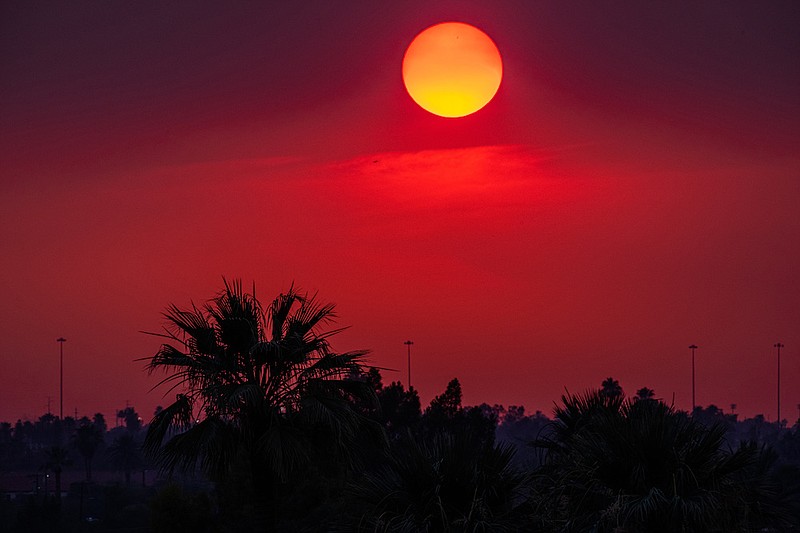There hasn't been much noise from climate change deniers this week.
Maybe the silence is due to the unprecedented heatwave in the West and Southwest. The photos of livestock roaming brown fields with no grass might encourage the deniers to lay low. Then there are the photos of Lake Mead. If you've ever toured Lake Mead and the Hoover Dam, you know that this symbol of American scientific innovation built during the Depression was a stunning tourist destination well as a source of water for drinking and irrigation. Today's situation leaves the water level at its lowest since the 1930s. You can now see the stone walls of the lake, and we'll see even more in the coming months.
Maybe the silence of the deniers is a matter of timing. With epic winters like the one that froze Texas, deniers declare it proof that there's no global warming. But climate change isn't just a matter of heat and drought but of multiple weather extremes.
Some say that the water level will rise as it has in the past 22 years of drought. Maybe. But not before the entire region is affected. The lack of water will affect millions, and its electricity production is at risk. How much pain must be inflicted before we stop electing deniers who refuse to take steps to remedy climate crises?
Utah's Gov. Spencer Cox called for Utahns to participate in a weekend of prayer for rain. He'd already asked them to avoid long showers and water-needy landscaping. But with Utah's soil moisture at the lowest level since it's been monitored, Cox declared the need for divine intervention.
Why do we have to debate climate change? Younger voters in the 2020 presidential election ranked climate action a top priority. Cuts to carbon dioxide emissions coupled with major investment in a clean economy are supported by 70% of the American public, according to a Fox News poll. The Pew Research Center reports that two-thirds of adults think that the government is doing too little to address the climate crisis. Those percentages are likely to increase as summer heat burns farms, reservoir levels shrink to historic lows, forest fires destroy thousands of acres, and weather patterns get weirder.
Unfortunately, the old saying, "follow the money" never gets old. Data shows that there are 109 congressional representatives and 30 senators who refuse to acknowledge the scientific evidence of human-caused climate change. That's 25% of our federal elected officials, including Tennessee's Republican Sen. Marsha Blackburn and Rep. Chuck Fleischmann. These 139 climate science deniers have accepted more than $61 million in lifetime direct contributions from oil, gas and coal industries. Together, Blackburn and Fleischmann accepted more than $1 million in lifetime fossil fuel donations.
And there's more money involved than just election contributions. Oil companies Chevron and ConocoPhillips contributed $1 million each to the conservative Senate Leadership Fund toward keeping Republican Senate Minority Leader Mitch McConnell in control, thereby helping ensure that climate denial remains a major political strategy.
Divine intervention can't fix this. Human failure must be addressed by human actions like voting, speaking out, resisting being bought. We can pray to God for rain, but as my dad used to say, "God helps those who help themselves."
Contact Deborah Levine, an author, trainer/coach and editor of the American Diversity Report, at deborah@diversityreport.com.
